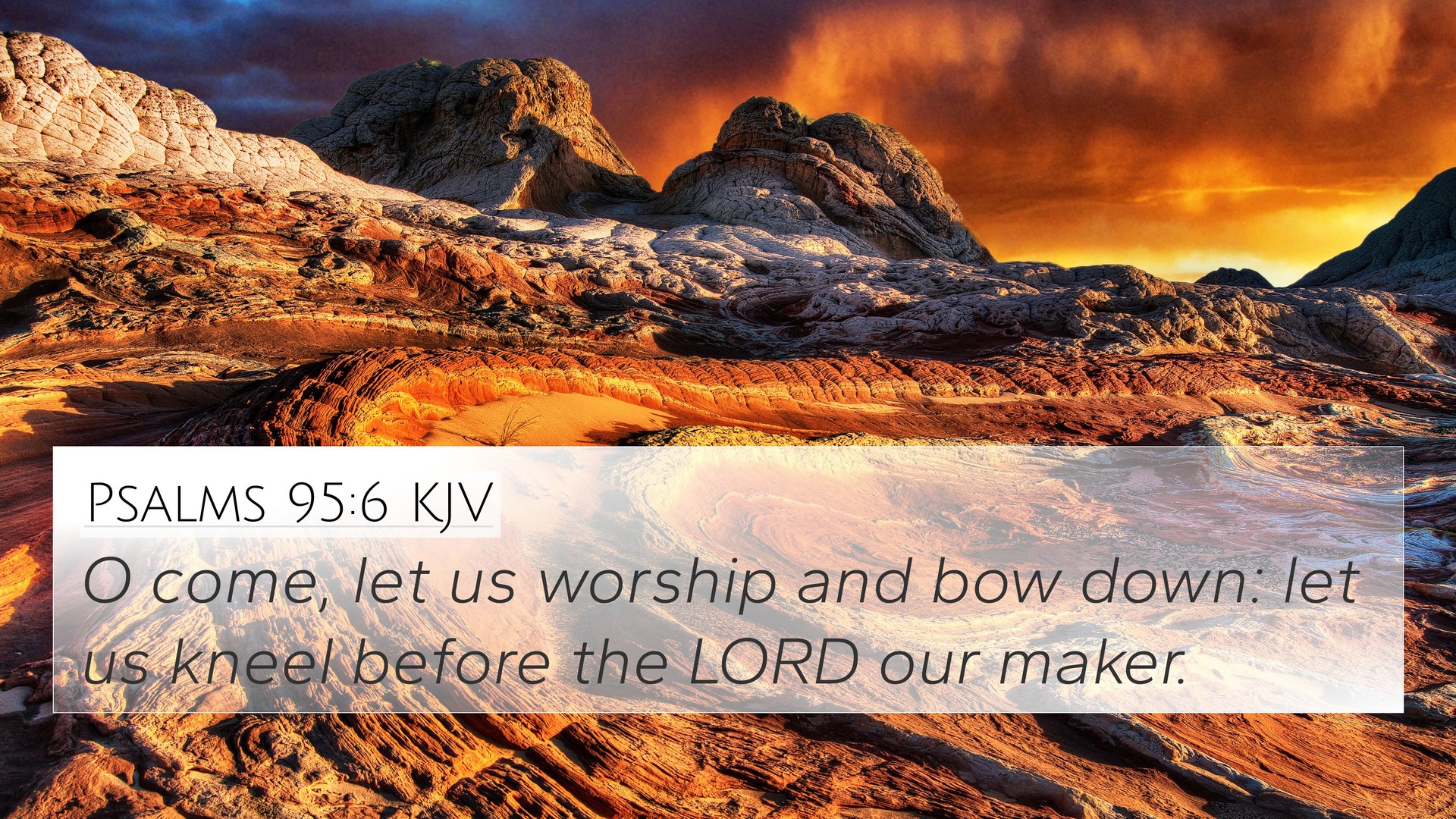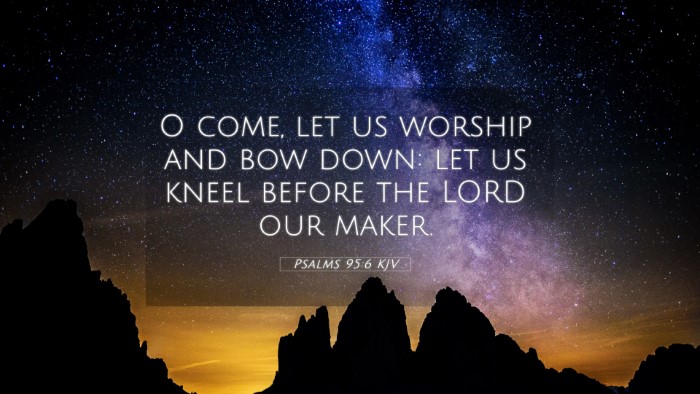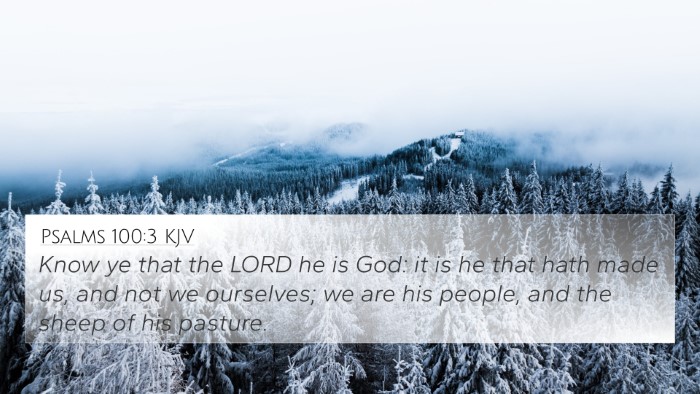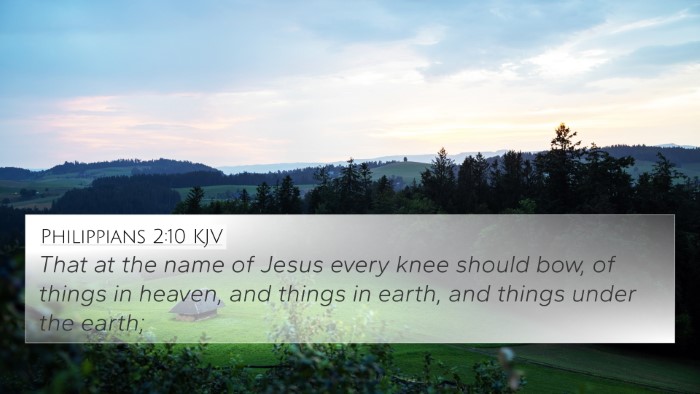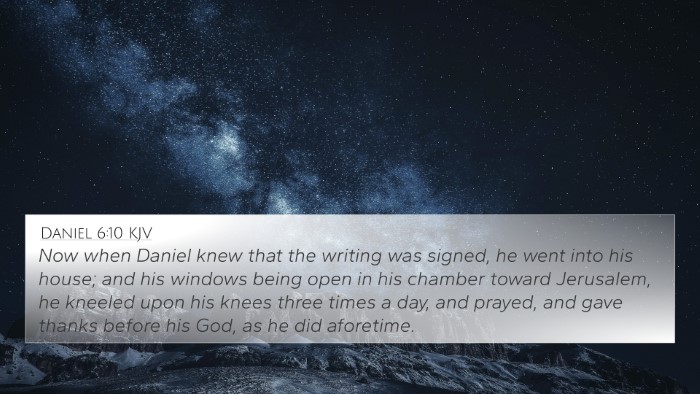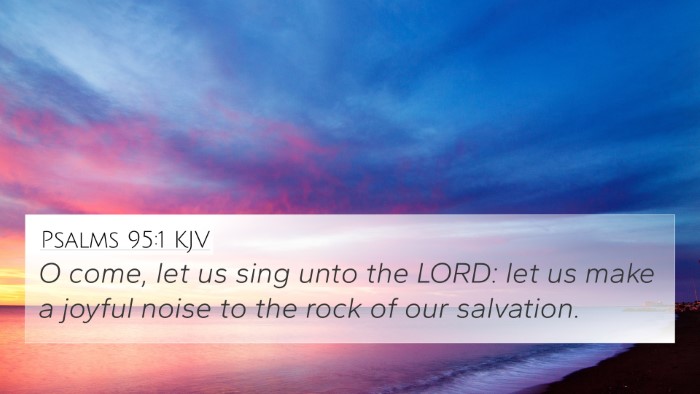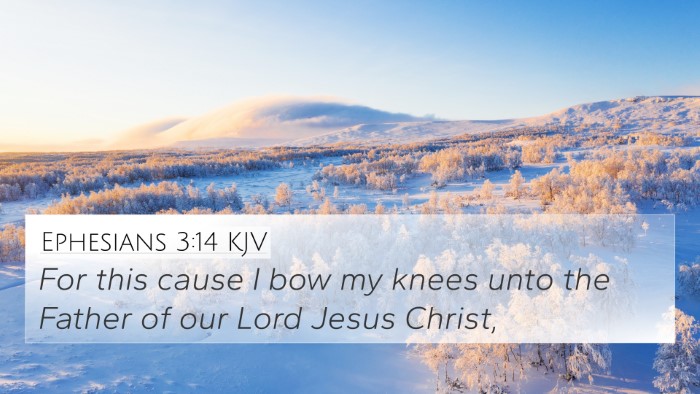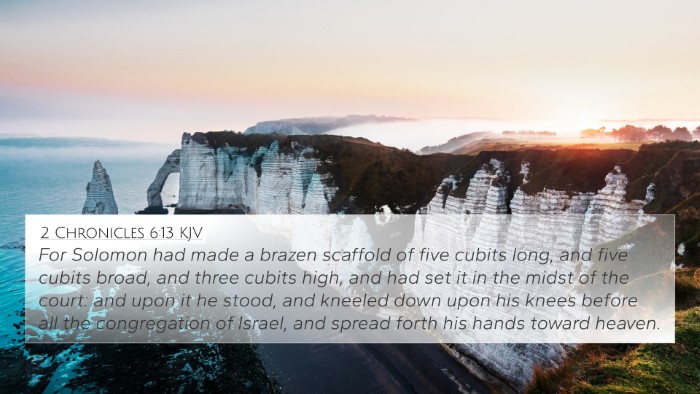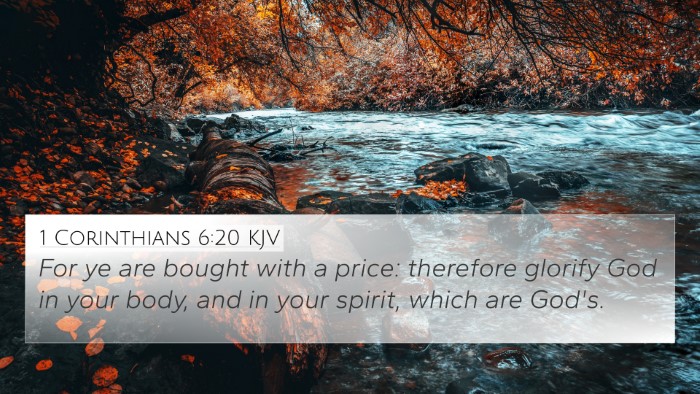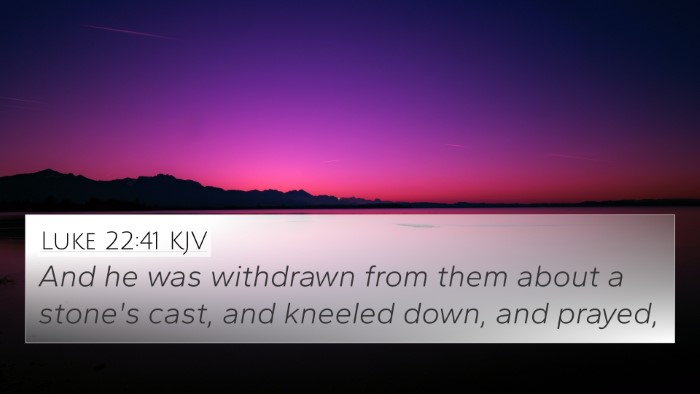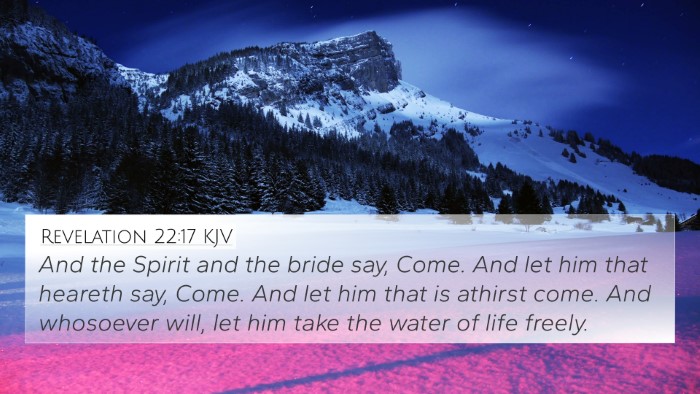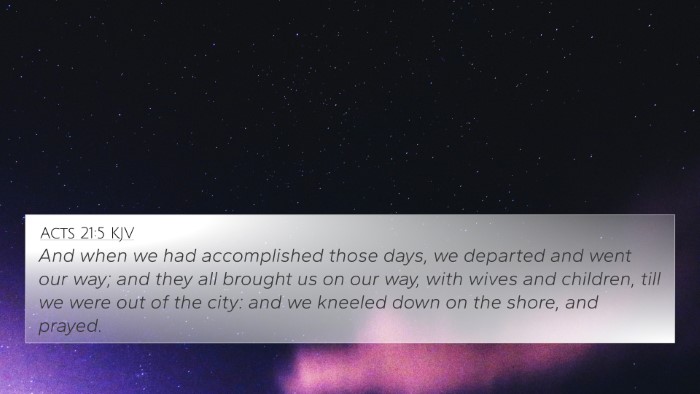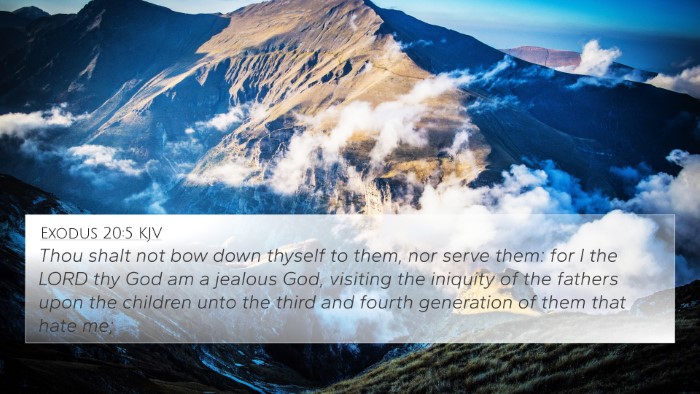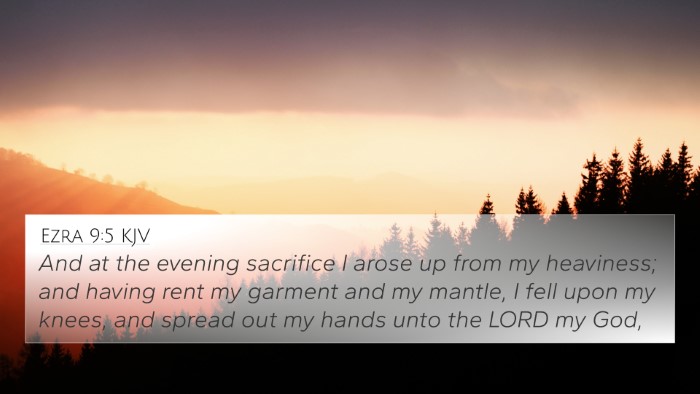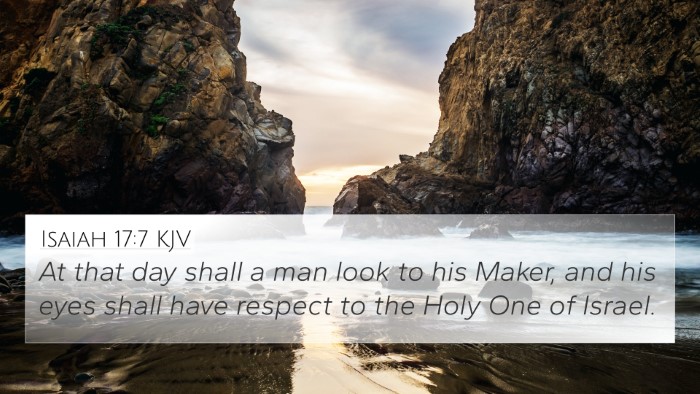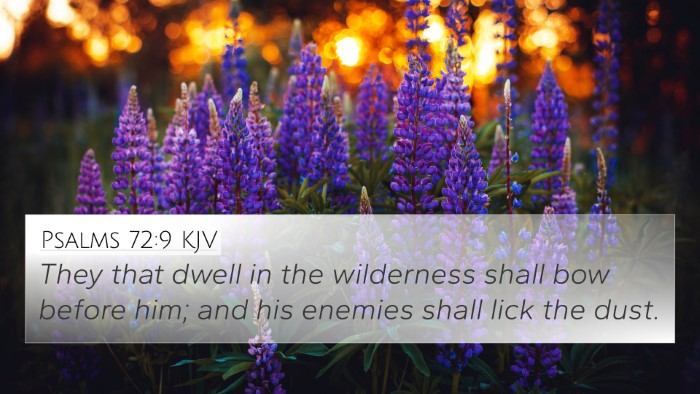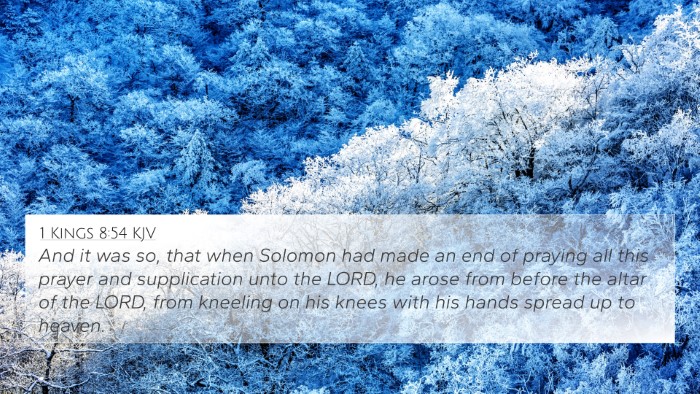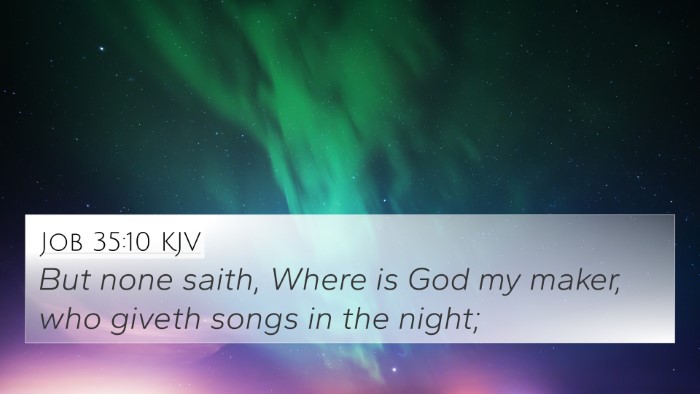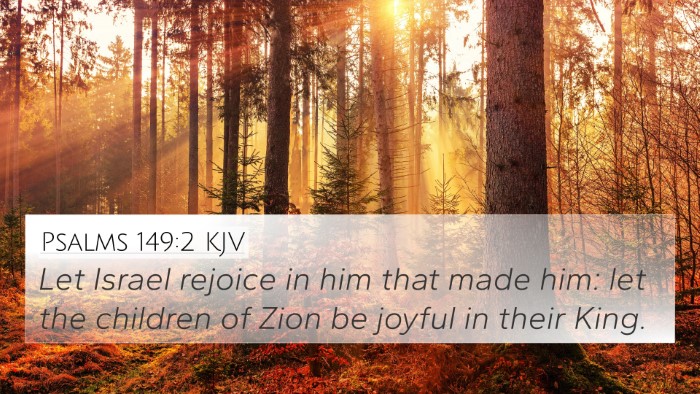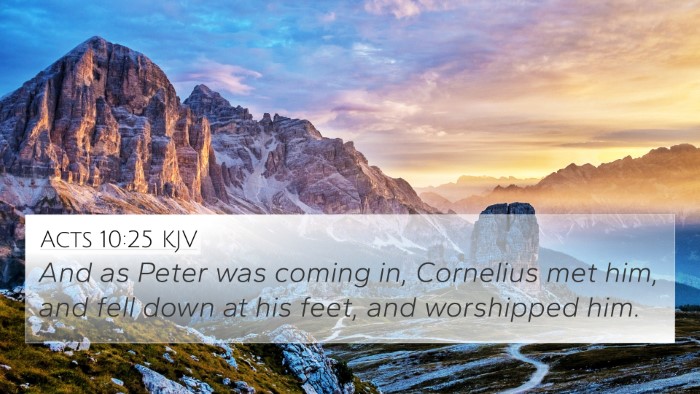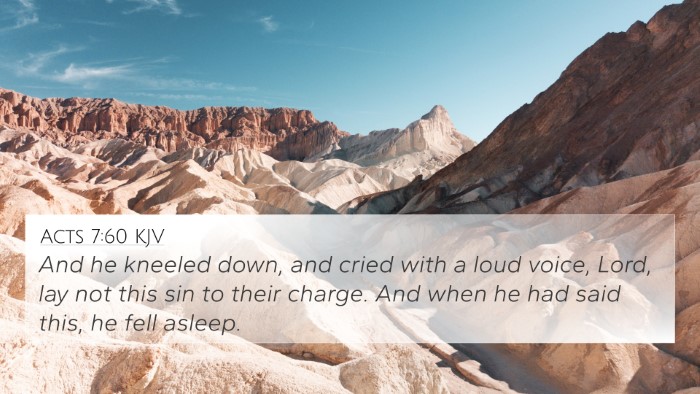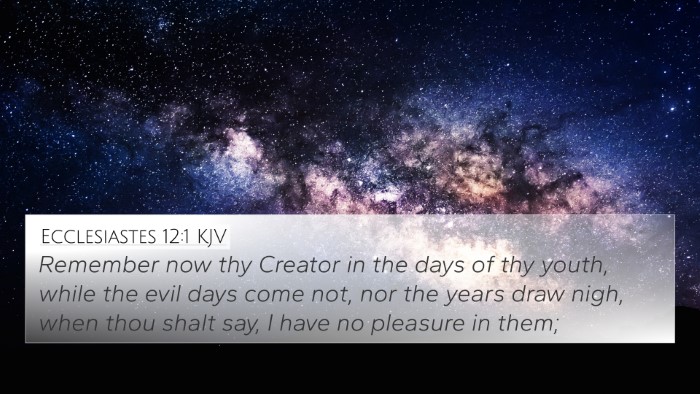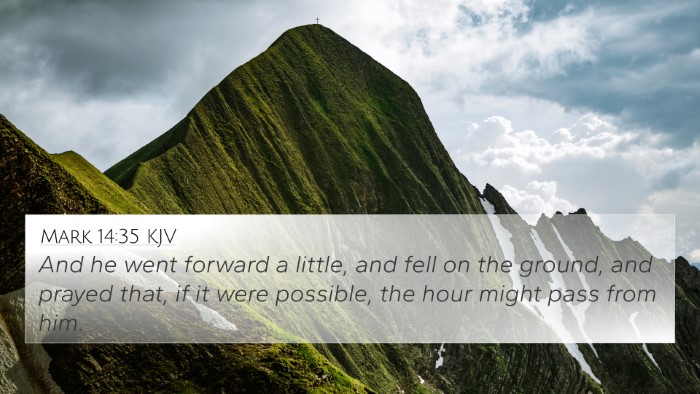Psalms 95:6 - Insights and Interpretations
Verse: "Oh come, let us worship and bow down; let us kneel before the Lord, our Maker!" (Psalms 95:6)
This verse epitomizes an invitation to worship, signifying both humility and reverence toward God. Public domain commentaries provide various interpretations that can deepen our understanding of its thematic richness.
Interpretation and Meaning
Matthew Henry's Commentary: Henry emphasizes the importance of worship in the life of believers, noting that it should stem from a heart of gratitude. The act of bowing and kneeling illustrates our submission to God, recognizing His sovereignty and creative power. Attending to God in worship brings us to a state of humility, which is necessary for spiritual growth.
Albert Barnes' Commentary: Barnes points out that worship in this context is not merely an external action; it is a holistic approach involving the mind and spirit. Worship signifies an acknowledgment of God as our Creator ("our Maker"), establishing a personal connection with the divine. Consequently, this verse challenges one to come into God's presence with a sincere heart.
Adam Clarke's Commentary: Clarke expands on the communal aspect of this verse, suggesting that it encapsulates an invitation for the gathered faithful to unite in worship. His insight highlights the importance of collective reverence, portraying worship as a foundational practice within the community of believers.
Connections Between Bible Verses
This verse can be cross-referenced with several other scriptures that echo its themes of worship, humility, and recognition of God's majesty:
- Psalm 95:1-2: Calls the people to come before God with joyful songs and thanksgiving.
- Hebrews 10:22: Encourages believers to draw near to God with a sincere heart and full assurance of faith.
- Psalm 100:4: Urges entry into God's presence with thanksgiving and praise.
- Philippians 2:10-11: Declares that every knee shall bow to Jesus, Magnifying His authority and lordship.
- Isaiah 66:2: Highlights that God looks with favor on those who are humble and contrite in spirit.
- Revelation 4:10-11: Illustrates the worship of the heavenly beings who bow down before God, acknowledging His sovereignty.
- Psalm 29:2: Calls for ascribing glory and strength to the Lord in your worship.
Thematic Connections
The overarching theme present in Psalms 95:6 relates to the idea of worship as an expression of submission, gratitude, and collective acknowledgment of God's greatness. These themes interweave throughout the Bible, creating profound connections between different texts:
1. Worship as a Call to Action
Psalms 95:6 explicitly beckons believers to worship, illustrating a dynamic relationship with God that brings together communal and personal aspects of faith.
2. Reverence and Humility
The act of kneeling as found in this verse represents a posture of humility, an important component also highlighted in other scriptural references, such as Philippians 2:10-11.
3. Recognition of Divine Authority
Throughout scripture, acknowledging God as our Maker reinforces the necessity to recognize His authority and power, which is a recurring theme in both the Old and New Testaments.
Tools for Bible Cross-Referencing
Understanding and interpreting Bible verses through cross-referencing can enhance your study experience. Various tools assist in this pursuit:
- Bible Concordance: A valuable resource for locating verses and identifying themes.
- Bible Cross-Reference Guide: Ensures readers can find connections easily between various passages.
- Cross-Reference Bible Study: Techniques that allow for in-depth analysis of thematic links.
- Bible Reference Resources: Collections of materials that provide insights into interconnected scriptures.
Conclusion
Psalms 95:6 serves as a significant verse that invites believers into the posture of worship and reverence before the Lord. By engaging with the collective insights from public domain commentaries and exploring cross-references, one can uncover the depth and richness present in the Scripture. This creates opportunities for personal reflection and communal worship, reflecting the heart of God’s desire for relationship with His creation.
